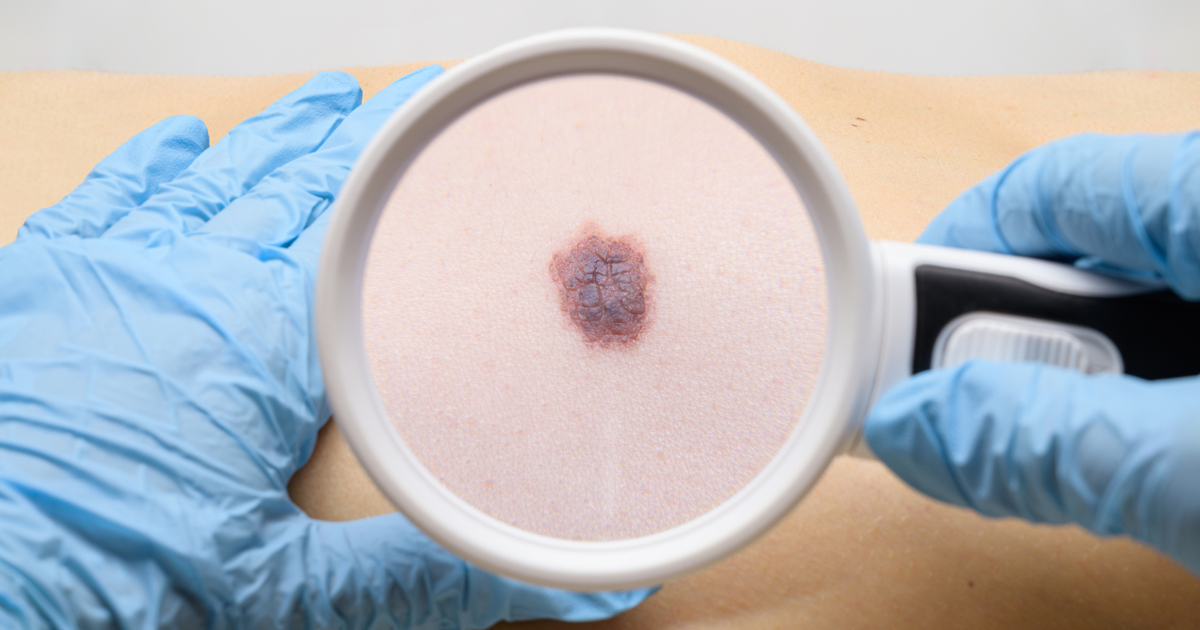6 common questions about Mohs surgery

Mohs surgery is an effective way to treat skin cancer. By pinpointing the cancer and removing it with precision, Mohs surgery gives high cure rates and allows for tissue conservation. Here are answers to common questions about Mohs surgery.
1. Can Mohs surgery be performed on melanomas?
Over the last decade, Mohs surgery has been highly effective and provides excellent cure rates for melanomas, specifically on the head and neck and other anatomically sensitive areas. At our Dermatology Clinic we have developed the expertise to perform Mohs surgery for melanomas. Our Mohs lab uses specialized stains that specifically stick to the cells that cause melanoma. Data shows that using Mohs surgery for the head and neck can significantly reduce recurrence rates for these types of melanomas.
Nebraska Medicine is one of the only medical centers in the region that does real-time Mohs surgery for melanomas. When melanomas are more advanced, we work with our skin cancer team to provide multidisciplinary specialty care.
2. Does Mohs surgery cause cancer to spread?
Historically, there were concerns that cancer surgery could spread the cancer further. Based on the biology of skin cancer, we know there's no association between Mohs surgery and the spreading of any cancer. In fact, Mohs surgery provides the highest cure rates for many types of skin cancers. Mohs surgery allows us to see all the edges and preserve normal healthy tissue comprehensively.
3. Can Mohs surgery cause nerve damage?
With any skin surgery, there are potential areas where nerve damage could occur. Anytime we consider surgery, we counsel our patients that tiny sensory nerves are in the skin. Often those sensory nerves are impacted. The good news is, many of those sensory nerves regenerate over time.
In most skin cancer surgery, there is no motor nerve involvement. Motor nerves are nerves that move muscles. Depending on where the skin cancer is, how deep it is and how aggressive it is, it can sometimes involve motor nerves. If there's any risk of affecting motor nerves, we discuss the expected outcomes before surgery begins. If the cancer does involve a motor nerve, it can sometimes regenerate. Other times we can use surgical and non-surgical modalities to help the body compensate.
4. Is Mohs surgery covered under most insurance?
Mohs surgery is the gold standard for treating skin cancer on the head, neck, hands and feet. For most insurance plans, Mohs surgery is covered for these areas, as well as on the trunk and extremities for more aggressive skin cancers.
Compared to other skin cancer treatments like wide local excision and radiation therapy, Mohs surgery is a cost-effective way to treat skin cancer. Mohs surgery also has an extremely low cancer recurrence rate, reducing the chance of needing an additional procedure.
Surgical removal, tissue processing and tissue reading are all done by the Mohs surgeon. In other types of skin surgery, you might need an anesthesiologist, a surgeon and a pathologist – all charging their own services.
5. Can Mohs surgery make you tired?
Mohs surgery is done on an outpatient basis under local anesthesia. During the surgery, patients are awake. No medications are required for patients to undergo surgery, which adds to the procedure's overall safety profile.
It's normal to have some tiredness and fatigue the day of and even a few days after surgery. Most patients are back at work a few days post surgery.
6. What should I expect after the procedure?
Most patients will have a pressure bandage over the area where the surgery was done. They'll leave the pressure bandage on for about two days. Depending on the location, the type of cancer and how it was sewn up, the patient should take it easy for about a week. They should avoid doing things that raise their blood pressure, like heavy lifting or exercising. This will optimize their healing and their aesthetic results.





